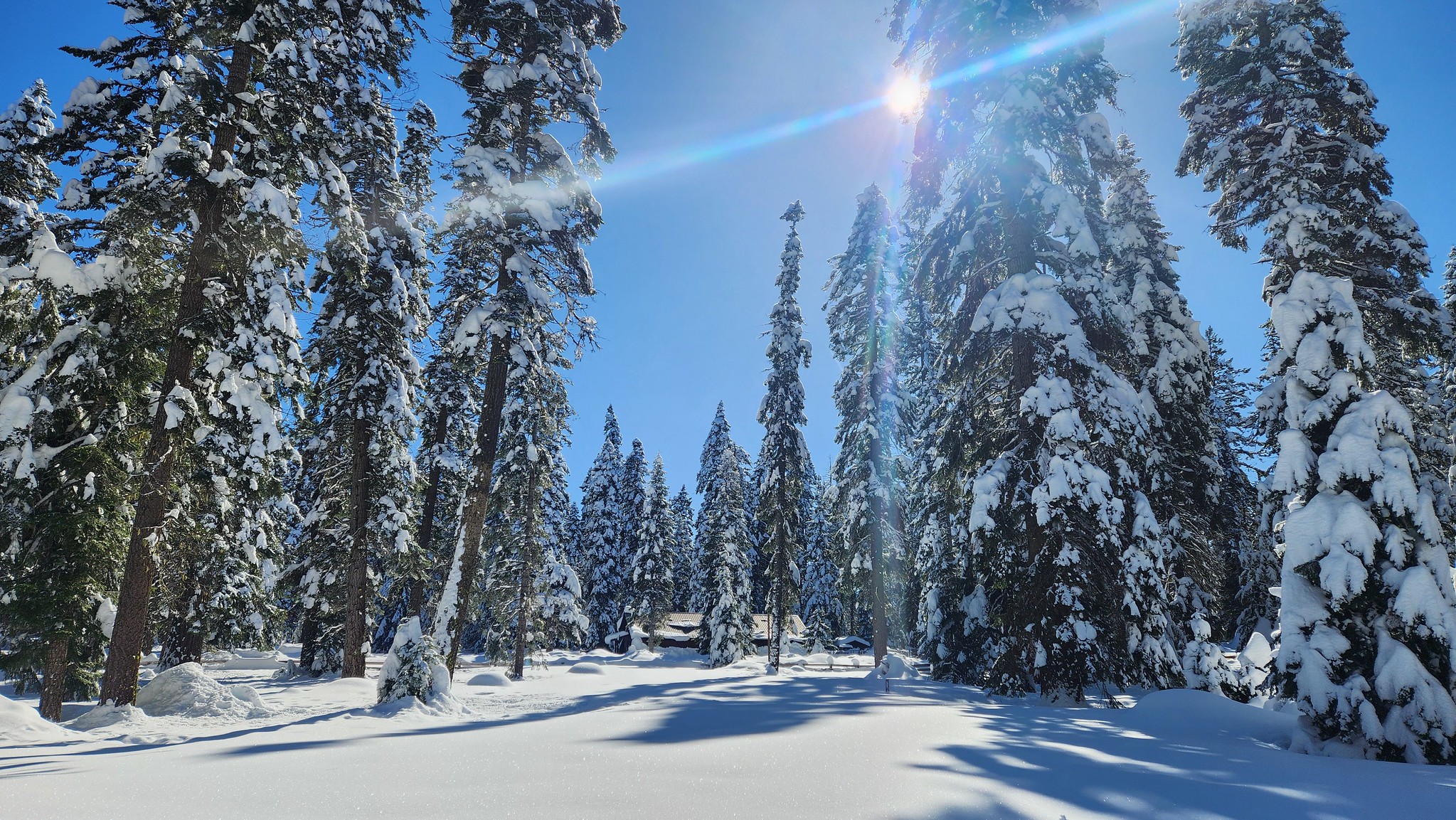News
Virginia Gun Owners Under Attack
January 29, 2026 •iSportsman Staff
June 13, 2025
A proposal tucked into a Senate budget reconciliation bill is drawing serious criticism from hunting, fishing and conservation groups who warn it could strip millions of acres of public lands from sportsmen and women across the West.
The provision, part of the Senate version of the so-called One Big Beautiful Bill Act and advanced by the Senate Energy and Natural Resources Committee, mandates the sale of not less than 2 million acres and not more than 3 million acres of federally managed public land across 11 western states, including Alaska, Arizona, California, Colorado, Idaho, Nevada, New Mexico, Oregon, Utah, Washington, and Wyoming, according to the Theodore Roosevelt Conservation Partnership (TRCP).
High Country News offers more detail on the proposed sale.
“The Senate bill instructs the Secretaries of Interior and Agriculture to dispose of .5%-.75% of all BLM and Forest Service lands, respectively. While the percentage appears small, each agency manages huge swaths of land, mostly in the Western U.S. The BLM oversees 245 million acres, equating to 1.23 million to 1.84 million acres for sale under this proposal. The Forest Service manages 193 million acres, which would mean 970,000 to 1.45 million acres would be sold off if the bill passes. In all, the total amount of public lands for sale could be as high as 3.29 million acres.”
The stated goal is to help address the housing crisis by making more land available for affordable housing development. But outdoor advocacy organizations say the move lacks public input, transparency and data to justify such a sweeping action—and that it threatens the very foundation of access that makes hunting and fishing possible for millions of Americans.
“Hunters and anglers have made it clear that reconciliation is not the appropriate vehicle for public land sales,” said Joel Pedersen, president and CEO of the TRCP, in a public statement. “The Senate proposal sets an arbitrary acreage target and calls for the disposal of up to six times more land than was proposed in early versions of the House budget reconciliation bill. If passed, sportsmen and women would lose access to large tracts of public land.”
Scope and Scale of the Proposal
While the House version of the bill initially proposed selling roughly 500,000 acres in Utah and Nevada, the Senate version escalates the impact significantly, authorizing a mandatory disposal of millions of acres across much of the West. Only Montana is excluded.
The targeted lands fall under the Bureau of Land Management, which oversees more than 245 million acres of public lands, many of which are prized by hunters, anglers, and other outdoor recreationists for their game habitat, fishing access, and wide-open space.
Critics argue that the bill’s language was introduced with no meaningful consultation with sportsmen, conservationists, state agencies, tribal entities or local communities, and that it could set a dangerous precedent for circumventing public land safeguards.
“There have been no public processes that led to the conclusion that this acreage of land sales is needed to support affordable housing,” Pedersen said.
In response, a coalition of 44 national hunting, fishing, and conservation organizations signed a joint letter to Senate leadership last week urging them to remove the public lands sale provision from the reconciliation bill. These groups include TRCP, Backcountry Hunters & Anglers, the National Wildlife Federation, Trout Unlimited, the National Wild Turkey Federation, the Rocky Mountain Elk Foundation and virtually every other conservation organization in the United States.

Hunting, fishing, camping, hiking and many other types of recreation could be impacted if public lands are sold. BLM Photo
Permanent Loss of Access
The most pressing concern is that once public land is sold, it’s lost forever. While the stated intention of the provision is to help alleviate housing shortages, the details of how and where the land would be sold remain vague. Opponents argue that such decisions should be made through established land management review processes, not through fast-tracked budget legislation. Critics cite recent findings by Headwaters Economicsthat less than 2% of the 181 million acres of Forest Service and Department of Interior land analyzed is “close enough to towns with housing needs to be practical for development.”
Forest service lands, specifically, those with more than 5,000 acres near towns are only present in Arizona, Utah and Oregon. Of all the public lands out West with proximity to population centers, more than half faces high wildlife risk as well as other hazards such as flooding and drought.
“TRCP stands ready to work with lawmakers to address the needs of local communities to create affordable housing,” said Pedersen. “But reconciliation is not the process for that kind of deliberative, transparent decision-making. Once public lands are sold, they are gone for good.”
According to Colorado Public Radio, the Bureau of Land Management does have a formal process in place to dispose of lands deemed no longer necessary for public use, but those reviews are typically conducted with input from stakeholders and based on clear criteria. The Senate bill, by contrast, imposes a fixed acreage mandate without clarifying what lands will be sold, who will determine their suitability or how public use and access would be evaluated.
Political Crossroads for Sportsmen
The issue creates a glaring moment of tension between many in the sporting community and the political leaders they’ve traditionally supported.
Many sportsmen, who are also gun owners, tend to support the Republican Party given their strong support for gun rights. However, the current provision—introduced by Republicans as part of the broader budget reconciliation framework—puts public land access and conservation values at risk, creating an uncomfortable divide within the party’s base and lending additional ammunition to those who already oppose the GOP.
Efforts to sell public lands are nothing new. HCN reports in the 1970s, a group of Western lawmakers sought to push back on growing environmental regulation on public lands by selling them to the states at which point the states could do what they wished with them. The current concern echoes a 2017 controversy when a similar proposal by then-Representative Jason Chaffetz (R-Utah) to dispose of 3.3 million acres of public land was met with a groundswell of opposition from hunters and anglers. That bill was eventually withdrawn after a strong backlash from sportsmen’s organizations.
With this latest attempt to mandate widespread land sales under the guise of budget reconciliation, conservation groups are once again mobilizing to protect what they consider one of the nation’s most valuable resources—public land.
What Happens Next
The Senate reconciliation bill is still under debate, and conservation groups are actively lobbying for the removal of the land sale provision before it reaches a vote. The TRCP and its partners have made it clear they’re willing to work with lawmakers on real solutions to the housing crisis, but not at the cost of America’s public land legacy.
For more state-specific reporting on the issue, check out the following stories:
Millions of acres of public land in Colorado, other Western states could be sold under Senate reconciliation bill– Colorado Public News
Latest federal budget bill would sell Oregon public lands, boost logging – Oregon Public Broadcasting
Republicans want ‘mandatory disposal’ of public lands, including in Idaho – Idaho Statesman
New provision in Senate budget bill could put Wyoming public lands up for sale – WyoFile
Montanans react to Senate proposal to sell federal land – Missoula Current
Conservation groups worried about how Senate public land sale plan could affect New Mexico – Albuquerque Journal
‘It belongs to all of us’: Advocates rally in support of protecting Arizona’s public lands – azcentral
